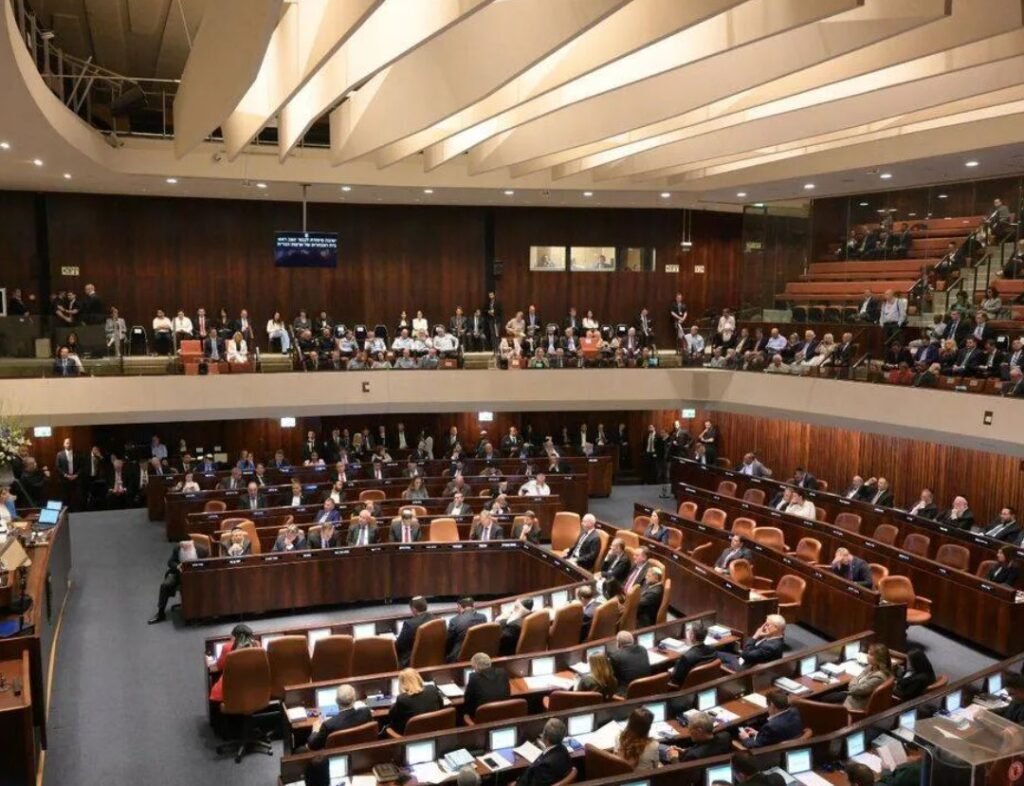This week, Israel’s Knesset approved a law allowing the Education Ministry to fire teachers and cut off funding to schools deemed supportive of terrorism. The measure has set off a contentious debate, with supporters calling it essential for national security and critics warning it could be used to target political dissenters, particularly in Arab communities.
The law, titled the Bill for Prohibition on Employment of Teaching Personnel and Withholding Budget from Educational Institutions due to Identification with Act of Terrorism or with Terrorist Organizations, passed on Tuesday with a vote of 55 to 45. It grants the Education Minister, currently Yoav Kisch, the power to dismiss teachers convicted of security offenses or identified with terrorist activities, even without prior notice—only requiring a hearing on evidence. The bill also allows for withholding funds from schools found to exhibit support for terrorism.
An “Essential” Step or a Political Weapon?
National Security Minister Itamar Ben Gvir, a prominent figure in the coalition government and head of the Jewish Power party, has been vocal about the law’s purpose. “Education,” he said, “is a central and significant factor that motivates many attacks against the State of Israel.” The bill’s proponents argue that it’s a necessary tool for protecting young minds from extremist influences, especially in schools where educators may wield considerable influence over students.
Zvika Fogel, one of the bill’s sponsors, echoed this sentiment, emphasizing the importance of keeping pro-terrorism messages out of the classroom. “A teacher…is one of the most influential figures for the children and youth in the State of Israel’s educational institutions,” Fogel stated. He sees the law as an essential measure to “ensure that a teacher will not take advantage of his influence [to encourage] terrorist activity by his students.”
According to the legislation, the Education Ministry can reduce or withhold funding from schools that host displays of support for terrorism or fail to prevent such activities. For many supporters, these restrictions are critical for safeguarding students from harmful ideology.

Scope of the Law: A Focus on East Jerusalem
The bill’s explanatory notes suggest that the legislation addresses a “phenomenon [of teachers supporting terror]” that allegedly exists in schools in East Jerusalem. This area, largely populated by Palestinians, has experienced rising tensions, with a noted increase in attacks by young residents. Proponents of the law argue that unchecked support for terrorist groups within educational settings can lead to long-term radicalization of minors.
While the law doesn’t specifically mention East Jerusalem, the area’s frequent mention in debates surrounding the legislation has made clear its primary focus. Some advocates argue that young people in East Jerusalem are vulnerable to extremist influences, citing social media posts by certain teachers as examples of pro-terrorism rhetoric.
Arab Community and Human Rights Advocates Push Back
The law has drawn criticism from both Israel’s Arab lawmakers and human rights organizations. Arab Hadash-Ta’al party Knesset Member Ahmad Tibi shared a statement from the Association for Civil Rights in Israel (ACRI), which argues that the law is designed to intimidate Arab educators. ACRI’s statement criticized the bill as a way “to regulate the discourse in schools and to harm teachers whose statements and worldview do not coincide with those of the education minister and the political parties controlling the Education Ministry.”
ACRI also raised concerns about freedom of expression, stating that the law “severely violates the rights to expression, employment and pedagogical autonomy of teachers and administrators.” Many Arab legislators worry that the vague language in the bill—particularly the lack of clear legal definitions for “terrorism”—could be exploited to dismiss teachers who openly criticize government policies or the coalition’s stance on contentious issues like judicial reform.
Some point to comments made by Education Minister Yoav Kisch, who previously referred to protests against judicial reform as “acts of terror.” This has added fuel to fears that the law might be used as a political tool to silence opposition voices. Critics argue that the broad powers granted to the Education Ministry could lead to the targeting of teachers who simply express dissenting opinions, whether or not they relate to terrorism.
Supporters Cite Prior Incidents in Arab Schools
Supporters, on the other hand, argue that there is already a troubling pattern of pro-terrorism sentiment in certain schools. Cases have surfaced where teachers in Arab schools allegedly posted messages on social media that glorified recent terror attacks, an act which proponents believe threatens Israel’s security. For them, this law is about reinforcing clear boundaries to prevent educators from abusing their influence to spread extremist ideology.
- Key Points of the Law:
- Dismissal of Teaching Staff: Allows for firing teachers convicted of serious security offenses or those publicly supportive of terrorist activities, with only a hearing on evidence required.
- Funding Restrictions: Authorizes the ministry to reduce or withhold funding from schools found to support terrorism, pending a hearing.
While many argue that freedom of expression is a fundamental right, supporters counter that security considerations must take precedence, especially where the safety of young, impressionable minds is involved.
What’s Next? An Uncertain Future for Israel’s Educational Landscape
The law’s passage marks a significant shift in Israel’s education policy, but its full impact remains to be seen. As the Ministry of Education begins implementing these new rules, questions linger over how they will be enforced and who will be most affected. Critics warn that without careful oversight, the law could set a troubling precedent for restricting academic freedom and eroding protections for educators.
As with many politically charged issues in Israel, the debate around this law is far from over. Education officials, legal analysts, and human rights advocates will be closely watching to see how the Education Ministry wields its new authority. In a nation deeply divided over matters of security, identity, and freedom, the consequences of this legislation could extend far beyond the classroom.
